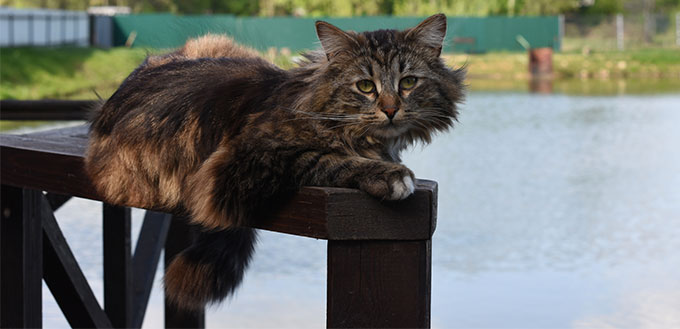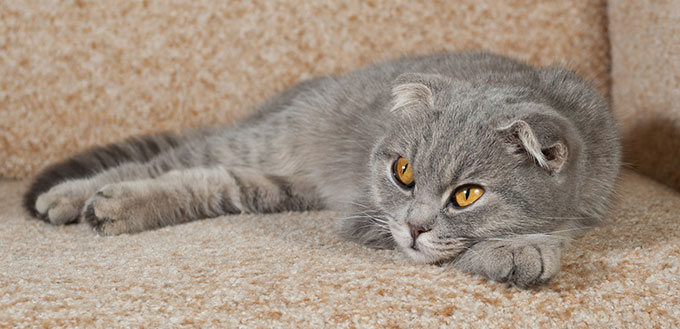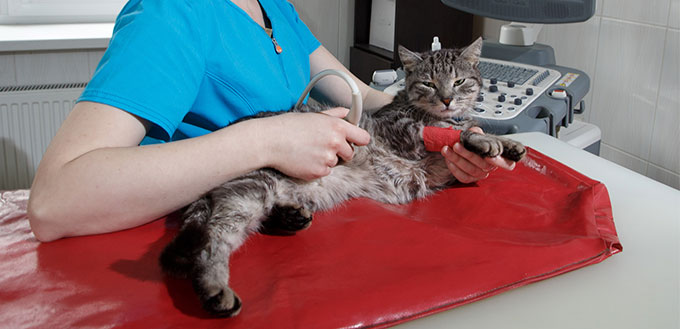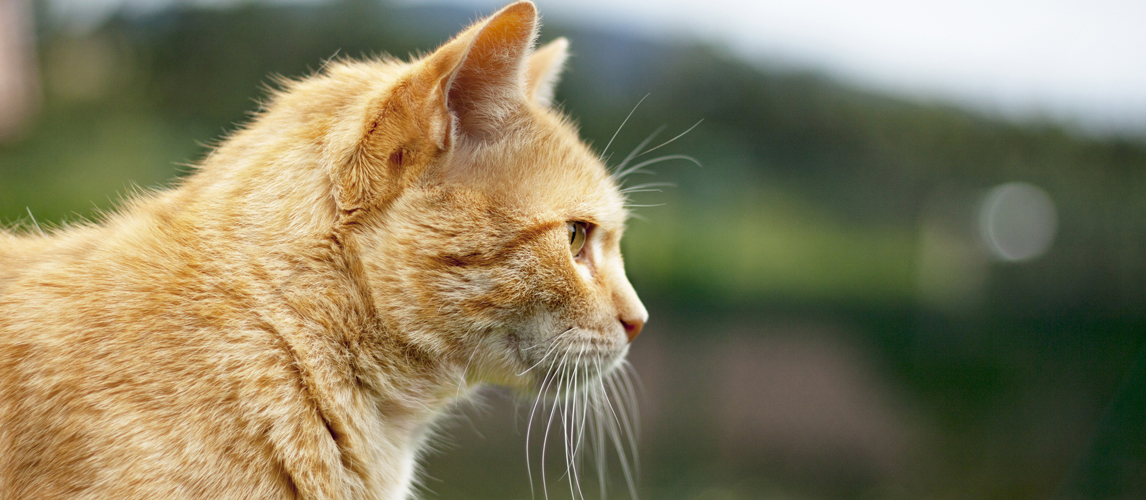Does your feline companion occasionally experience diarrhea or vomiting? Have you frequently called on the vet for these issues? Has the vet diagnosed your furbaby with colitis? If you answered yes to all these questions, don’t panic.
Colitis is quite common among the feline population, and if your kitty often struggles with vomiting and chronic diarrhea, then the culprit might be IBD, also known as inflammatory bowel disease or Irritable bowel syndrome. This condition is characterized by inflammatory cells infiltrating the intestinal walls and interfering with a cat’s normal digestion and can be remedied in no time. To find out more on what IBD is, the causes, symptoms, and treatment, continue reading.
What is IBD?
Feline IBD is an abbreviation for inflammatory bowel disease in cats. The condition is typified by the chronic inflammation or irritation of a cat’s GI (gastrointestinal) tract. The walls of the GI tract are infiltrated by inflammatory cells, which makes them become thicker, thus, disrupting the natural ability of the tract to digest and absorb food properly. Irritable bowel syndrome in cats occurs irrespective of age; however, it is more widespread among older kitties or middle-aged ones.
IBDs in cats can come in several forms – this is dependent on the kind of causative inflammatory cells or the part of the cat’s GI tract affected. An IBD is termed ‘gastritis’ if it affects the cat’s stomach and the term ‘enteritis’ is used when the inflammation is located in the small intestine, while ‘colitis’ refers to any inflammation in the large intestine (colon).
However, the type of IBD that is more widespread among the feline population is the one called lymphocytic plasmacytic enteritis – this occurs when the small intestine is invaded by plasma cells and inflammatory lymphocytes. Another common type of feline IBD is eosinophils – a sort of inflammation involving the white blood cell. Occasionally, they may occur as the predominant cell type, like in eosinophilic gastroenteritis.
Causes of IBD in Cats
More often than not, the causes of IBD in cats may be undetermined or completely unknown. However, there are several possible causes;
- Bacterial infection like E. coli or Salmonella.
- Parasitic infection – This can come in the form of single-celled parasites like Tritrichomonas or Giardia. It can also be caused by worms
- Intolerance or allergy to a certain type of food protein
- Anomaly in motility and colonic myoelectrical functions
- Deficiency in dietary fiber
- Stress – this may be rare
- Genetics
- Usage of antibiotics
- Immune system breakdown
Symptoms of IBD in Cats
The symptoms to expect in feline IBD depend on the part of the digestive tract is affected. Chronic vomiting has been observed in situations where the stomach is affected. On the other hand, chronic diarrhea usually occurs when it is the intestine that is involved. There are still events where the two parts of the feline’s GI tract will be involved; in such cases, you should expect both diarrhea and vomiting.
The duration of the syndrome will determine other symptoms. Poor appetite and weight loss will follow if the condition exceeds a few months. What’s more, there have been some observed cases where the affected kitty develops a voracious appetite – this is as a result of the inability to digest ingested food.
Note; it is abnormal for a cat to vomit hairballs more than once monthly – this only means that your kitty has lost the natural ability to pass hair through its GI tract. And if the vomiting becomes a regular occurrence, inflammatory bowel disease may be the cause. Your cat might experience difficulty with ejecting feces or may defecate too frequently, and there may be blood in the poop. Constipation, abdominal pain, gas bloating, and lethargy may occur.
Related Post: Cat Food for Constipation
IBD in Cats: Treatment
For your cat’s IBD treatment, you may try some home remedies before going for medication.
- Dietary changes
Undertake a hypoallergenic food experiment. This involves exposing your fur buddy to new sources of protein and carbs such that it has never tried before; rabbit and duck-based foods are good food options for IBD.
While conducting this food trial, be sure not to feed the cat with any other food substances – this includes treats, table scraps, and medication. Also, improvement may take as long as several weeks to come. However, if no progress is made, you can change the diet again. Felines tend to respond better to cats foods that are high in fiber, easily digestible, and with low fat content. More importantly, always involve your vet in such food trials to ensure that what you are feeding your furry friend is suitable for its age, breed, and activity level.
- Stress management
If the cat’s living condition is causing undue stress, you will need to address it immediately. There are observed cases where some anti-anxiety medications have been prescribed to assist the feline in dealing with conditions that cannot be resolved otherwise. In such situations, you can use calming essential oil sprays or diffusers to aid in soothing the cat’s anxiety.
What’s more, the amount of cat-human interaction should be increased, and plenty of toys should be made available – this will help in reducing stress. Owners should also make sure that their feline companion is getting adequate exercise.
Related Post: Cat Toys
- Steriods
The anti-inflammatory properties of steroids make them perfect for the treatment of IBDs. A common one is prednisolone, but budesonide can also suffice as its effect is localized to a feline’s GI tract – this means that fewer side effects are expected.
- Antibiotics
Metronidazole is an antibiotic commonly prescribed for its anti-inflammatory properties, but it has to be used long term.
- Medication to improve appetite
A cat’s appetite can be boosted with medications like mirtazapine. Cerenia can be prescribed to control nausea.
- Prebiotics
Prebiotic supplements such as psyllium husk function as special sources of fiber which, nourish bacteria present in the gut.
- B-12 injections
A feline can be injected with B-12 injections and folate for digestion and cell signaling.
- Probiotics
Literally, this means “for life,” probiotics for cats provide them with a regular source of useful gut bacteria.
- Antacids
This can come as Prilosec or Pepcid and function to reduce the acidity of a feline’s stomach acid in a bid to stop it from irritating or inflaming the lining of the digestive system.
- FMTs
This is called Fecal Microbiota Transplants. Here an infected cat receives gut bacteria in the fecal material of a healthy donor into its digestive tract.
Sources:
- Inflammatory Bowel Disease, Cornell University College of Veterinary Medicine
- Lisa Gorman, DVM, DACVIM, Chronic Gastrointestinal Disease in Cats, The MSPCA–Angell
Note: The advice provided in this post is intended for informational purposes and does not constitute medical advice regarding pets. For an accurate diagnosis of your pet's condition, please make an appointment with your vet.










